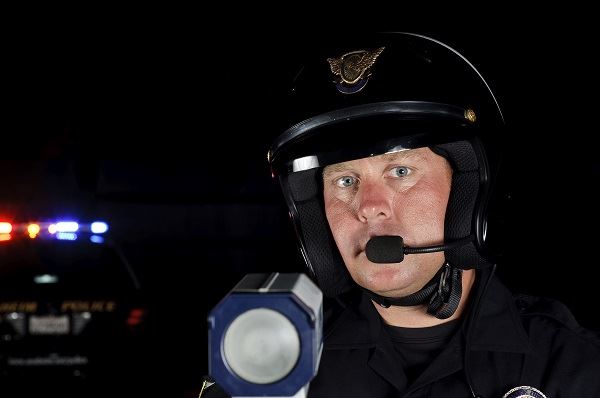 Speeding is a criminal offense all over the world, as it puts the life
of the driver and passengers in the vehicle at risk while jeopardizing
the safety of other drivers. Technological advancements have made it easier
for the police to determine the speed of vehicles by using a radio detection
and ranging gun (police radar).
Speeding is a criminal offense all over the world, as it puts the life
of the driver and passengers in the vehicle at risk while jeopardizing
the safety of other drivers. Technological advancements have made it easier
for the police to determine the speed of vehicles by using a radio detection
and ranging gun (police radar).
How Police Radar Works
The police radar can be hand-held or permanently mounted on a police patrol vehicle. It determines the speed of a moving vehicle directly by measuring a slight change in speed (Doppler shift) of the reflected radar waves it shoots towards an approaching vehicle. They work by transmitting the radio waves at a fixed frequency. A built-in computer then uses these measurements to calculate the current speed of the approaching vehicle.
The police can operate the Constant-On radar while in motion or stationary.
The Instant-On (IO) police radar is designed particularly to defeat drivers that operate a radar detector. When using the IO, the officer who must see your car will then trigger the radar gun. By turning on the device only when the police officer sees a car they want to know how fast it is going, it provides no advanced warning to the driver who may be using a radar detector.
The IO radar is especially accurate when operated from an on-ramp or overpass, during the cover of the night or from a less visible position from the shoulder or median of a roadway.
When used well, a properly serviced radar gun is highly accurate. However, since the roads and the police aren’t controlled environments, there are chances that a wrongly calibrated radar gun, interference, or incorrect use could lead to inaccurate results.
A “Speed Trap” Under California Law
Under the California law, CVC 40802, “A speed trap is a particular section of a highway measured as to distance and with boundaries marked, designated, or otherwise determined in order that the speed of a vehicle may be calculated by securing the time it takes the vehicle to travel the known distance.” Therefore an “airplane surveillance” with police radar is illegal in CA, unless accompanied by a pacer. Furthermore, a Speed Zone Survey must have been completed on the section of road within the last five years for a speed limit to be justified and set. If a speed trap was used and it is established by the defense, the speeding charges that you face will likely be dismissed.
This can form a good basis when fighting your traffic ticket since a great deal of the radar gun errors are human introduced or neglected calibration. The best way to contend the radar device’s readings is by questioning its serviceability or the possibility of improper use or interference from the environment that led to an incorrect reading. However, the time to do that is not on the side of the highway and not between you and the LE officer, but in a courtroom.
Speeding Tickets
Speeding tickets in California carry expensive fines and DMV points. There is fixed maximum and prima facie type speed limit violations. The fixed maximum limit indicates that it is unlawful to exceed the posted speed limit anywhere at any time, while the prima facie gives drivers the liberty to justify their driving speed as safe and lawful. Due to other penalties and assessments added to the base fine, a ticket for speeding in California may end up costing you up to several times the amount of the base fine.
The police radars are the most effective devices in determining the speed of a moving vehicle due to their accuracy. They provide the evidence needed to charge a driver for speeding and establishing the miles per hour more than the speed limit to justify the base fine.
Professional Traffic Ticket Defenders
In Tulare, Kern, Inyo, Riverside, and LA counties, as well as other SoCal counties a call to Bigger & Harman, 661-349-9300, or an email: attorney@markbigger.com with details will start the ball rolling on your case. You can set up a FREE consultation that is always confidential to review your case. Oftentimes, LE officers are not available on the court date due to other duties, or a DMV procedure or other technicality could allow a dismissal of the charge against you or probation instead of a suspension. This is particularly true when you have professional representation that does nothing but defend traffic tickets.
En español, llame al 661-349-9755.